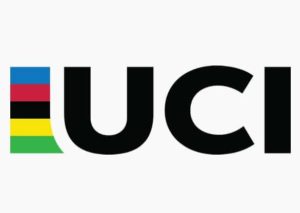
The UCI Bike City label supports and reward cities and regions who not only host major UCI cycling events but also invest in developing community cycling and related infrastructure. The long-term aim is to develop a network of UCI Bike Cities, creating examples around the world of how cities can maximise the impact of sport to help create better, safer cities for all people on bikes, regardless of their age, level of fitness or cycling activity. To be eligible for the UCI label, cities and regions will be assessed according to a broad range of criteria which demonstrate how elite cycling events can be part of an overall strategy to promote and achieve safe cycling for all.



GHG Protocol establishes comprehensive global standardized frameworks to measure and manage greenhouse gas (GHG) emissions from private and public sector operations, value chains and mitigation actions.
Building on a 20-year partnership between World Resources Institute (WRI) and the World Business Council for Sustainable Development (WBCSD), GHG Protocol works with governments, industry associations, NGOs, businesses and other organizations.
GHG Protocol offer online training on our standards and tools, as well as the “Built on GHG Protocol” review service, which recognizes sector guidance, product rules and tools that are in conformance with GHG Protocol standards.




With this document FIFA lays down the main principles of its tobacco-free policy in relation to FIFA’s own international football competitions and other related events organised by FIFA (“FIFA Events”) and the official sites where such FIFA Events take place, to the extent that FIFA has the exclusive use or control of such sites (“Event Sites”).
Key dates in FIFA's work towards smoke-free sporting events:
1986: FIFA announces it will no longer accept advertising from tobacco-industry sponsors.
1999: At the FIFA Women’s World Cup™ in the USA, FIFA supports an anti-smoking campaign launched by the U.S. Department of Health and Human Services (HHS).
2002: FIFA supports a smoke-free campaign launched by WHO and the HHS. World football’s governing body is consequently bestowed with the WHO Director General’s Award for an anti-smoking campaign.
2002: Korea/Japan becomes the first smoke-free FIFA World Cup, meaning it has no links whatsoever to tobacco. Every FIFA World Cup since has followed suit.
2010: FIFA, the LOC and other stakeholders develop and adopt the ‘Stadium Code of Conduct,’ which describes the applicable measures and policies for stadium visitors and staff, including prohibition of smoking in the stands and around the pitch.
2011: FIFA provides input to the European Healthy Stadia Network for policy position and enforcement guidelines for UEFA, concerning a smoke-free UEFA EURO 2012.
2013/2014: The FIFA Confederations Cup and FIFA World Cup in Brazil take place as tobacco-free events.
2015: World No Tobacco Day celebrated as 'World Smoke Free Day' at the FIFA U-20 World Cup New Zealand 2015.
2017/2018: Both the FIFA Confederations Cup and the FIFA World Cup in Russia are tobacco-free events.
